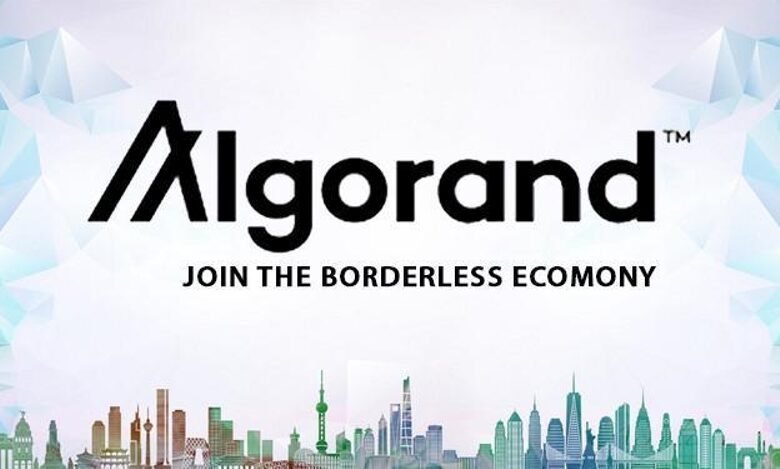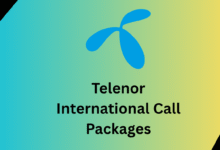Algorand and DeFi Revolution: Whats are New Challenges and Solutions

The economic exodus from centralized to decentralized technology, such as blockchain, applies to decentralized finance (DeFi). The market collapse is seen in 2008, which led to a crisis, sowed concerns about banks and financial institutions in the heads of people. Since then, there has been a relentless push to step away from authoritarian institutions, and not just in terms of technology but also in governance, blockchain has been at the forefront in pushing toward open structures.
DeFi has emerged as one of the most popular sectors in the blockchain space, from basic peer-to-peer and cross-border transfers to electronic lending, with a variety of use cases being pursued by businesses, organizations, individuals, etc.
Read more: Algorand vs. EOSIO: Which One is Best
The Pure Proof-of-Stake consensus protocol of Algorand was developed for enterprise-grade usefulness and was intended to solve what was known as the blockchain trilemma, which was concurrently the challenge of achieving scalability, decentralization, and stability in a blockchain that many found unworkable. The developer team hopes that these new advancements in Algorand smart contracts will drive decentralized apps and the DeFi space to take on existing financial structures as the blockchain industry continues to reach maturity.
Algorand founder Silvio Micali reflected on the product update and claimed that DeFi has the potential to bring a major difference to the existing financial environment for the better. As such, the redesign of the business would serve as “a stable base for powering genuinely frictionless applications, and our approach to smart contracts makes them high-performing and technically mature enough to compete with traditional financial institutions today.”
Read more: Blockchain Resilience: Unraveling Bitcoin Potential Offers by 2020
One of the businesses utilizing the Algorand network, Kendrick Nguyen, Co-Founder, and CEO of Republic, said that his organization selected Algorand because of “the functionality of a cost-effective application at scale.”
DeFi provides solution
Unfortunately, with current smart contract choices that prohibit many of their DApps from achieving widespread acceptance, DeFi developers face many challenges:
High costs of execution:
The payments necessary for the connexions and execution of smart contracts on traditional networks are very high, sometimes bringing into question economic feasibility and generating an entry barrier that compromises the protection of the blockchain through promoting bad miners.
Read more: 3 Types of Cybercrimes on the Rise as More Pakistanis Go Online
Scalability & Speed:
Consensus times for the first-generation block remain very sluggish and often suffer from frequent forking, rendering it difficult to scale to millions of users, as slow transaction rates create latency and fuel a loss of network trust.
Security Issues:
Legacy smart contracts have some vulnerabilities that can place assets at risk in a smart contract.
The world of the DEFI (Decentralized Finance) is still in its first stages and there are quite very minimal solutions. Most (at least that I know of) of them are built on Blockchain Layer 2. This usually makes them not user-friendly and “outsiders” difficult to explain. The UX (User Experience) is also far from perfect. And the thing that bothers me the most is that they seem to sacrifice the protection and/or decentralization that gives Blockchains the excuse to be implemented on another layer as their parent Blockchain.
Read more: 10 Things You Need to Know About Bitcoin
DEFI solutions need to be built with the same internal properties of their parent platform in order to actually receive a borderless market, but if they don’t, they will still be threatened by centralized solutions that might provide a more pleasant onboarding.
A new blog post was published by Silvio Micali, Turing Award winner and founder of Algorand, where he announced that Algorand Inc is offering two innovative solutions to be implemented on their platform’s Layer 1 stage.
- The creation of new exchangeable tokens and
- Atomic multi-party transactions (AMPTs) implementation,
For the creation of DEFI software, such as the tokenization of assets such as futures, stocks, swaps, and shares, these features are important. The Dutch auctions that Algorand created for their initial token sales are one instance of this. These auctions could, due to this new methodology, be carried out on a chain and on a global scale.
Algorand and DeFi revolution
At the Layer One stage of Algorand ‘s Blockchain, the creativity of these technologies being developed is genuinely groundbreaking. This implies that they are part of the consensus protocol that retains the original blockchain features that are also special to Algorand ‘s Pure Proof of Stake (Security, Scalability, Decentralization, Finality, and Speed) approach.
This not only assures these features; it also aims to make construction strategies more user-friendly and increases the experience of the user. Dream of all the dynamic Smart Contracts and Layer 2 implementations that have been developed today. If we still have questions about their true protection and performance, how can consumers who are not familiar with the blockchain world ever feel safe leaving their savings there?
Typically, financing requires several pieces. To offer profitability, market arbitrage, and lower interest rates, networking is necessary. You need speed and scalability for DeFi to become a true global fact. With Proof of Work, these features cannot be obtained. Without compromising protection and/or centralization, only the Blockchain of Algorand can supply them.












2 Comments